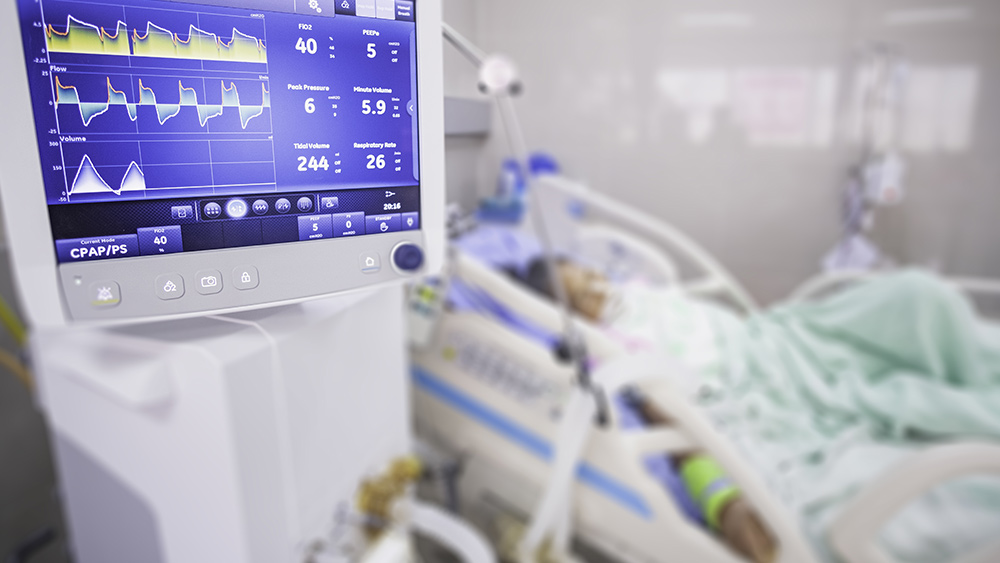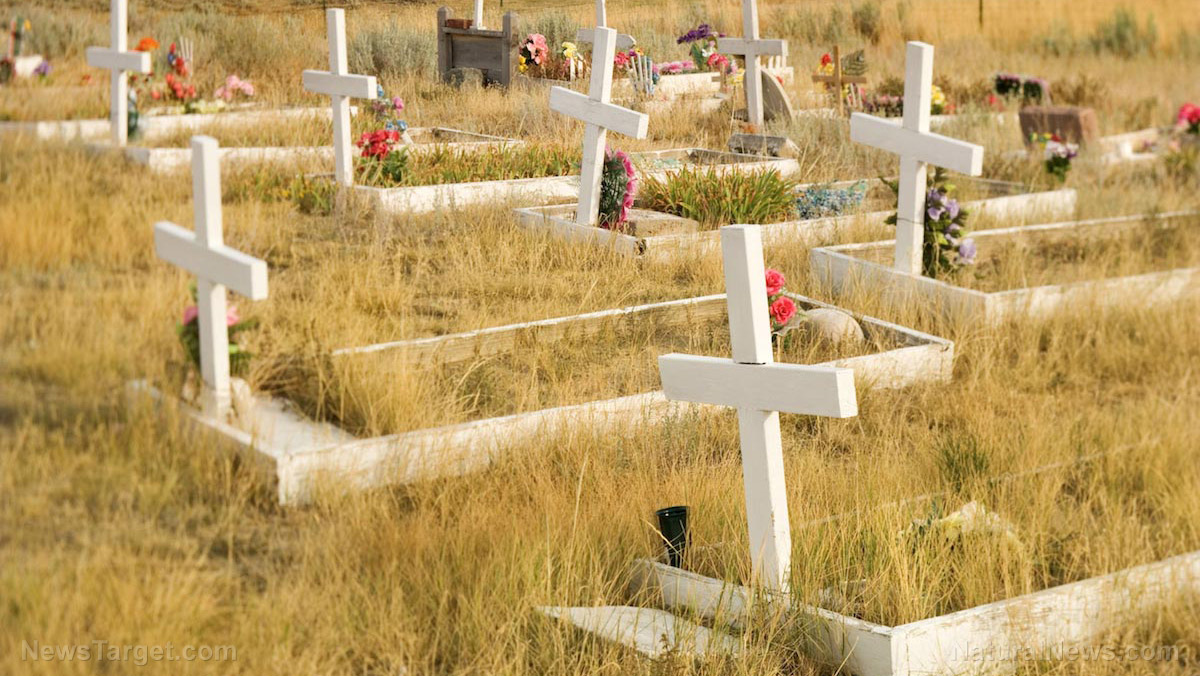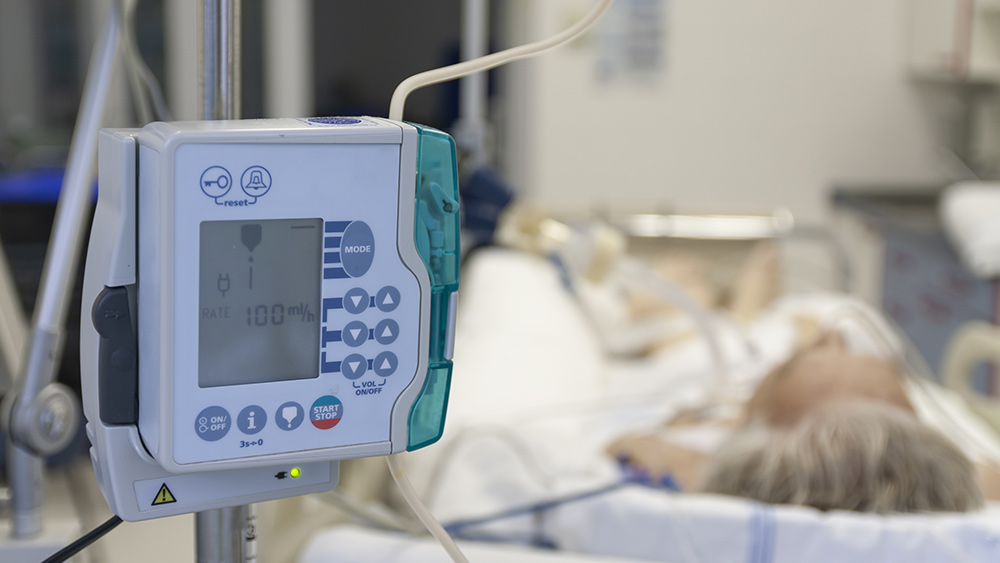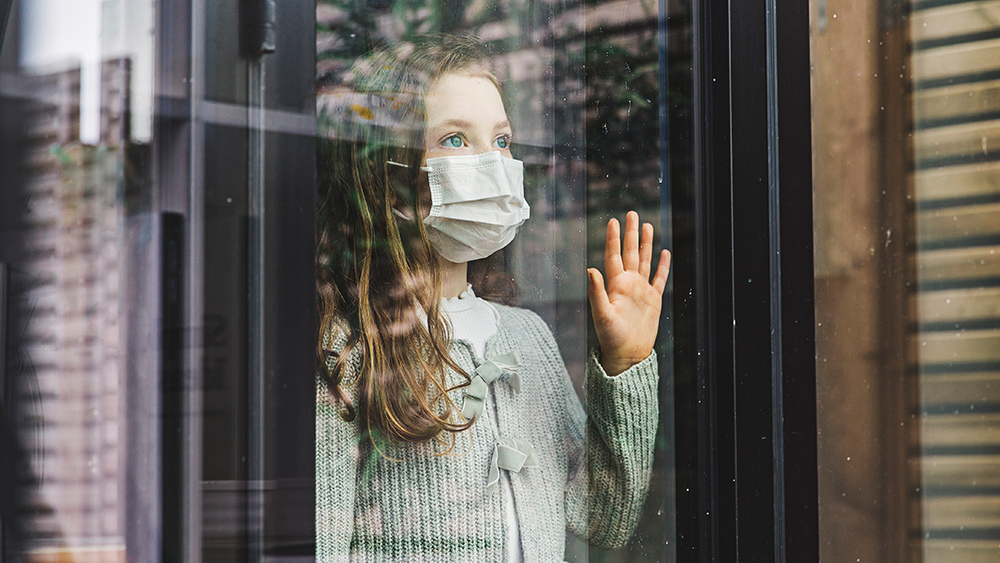Tom Renz: Hospitals are now becoming killing fields – Brighteon.TV
09/17/2021 / By Nolan Barton

Tom Renz accuses hospitals of taking advantage of the Wuhan coronavirus (COVID-19) pandemic to make more money while ignoring the actual needs and requests of their patients. He says hospitals across the U.S. “are now becoming killing fields.”
“When you go to a hospital, even if you don’t have COVID-19, you’d be construed that way,” says Renz during his program “Lawfare with Tom Renz” on Brighteon.TV. “They get hundreds of thousands of dollars for putting you on remdesivir, putting you on ventilator and letting you die. And if you don’t follow, they’ll just intimidate you and coerce you.”
His guest on the program, Nancy Ross, has experienced that firsthand. Ross has been given the power of attorney to act on behalf of Veronica Wolski, a known patriot from Chicago who recently died from COVID-19 at AMITA Health Resurrection Medical Center.
The Cook County Medical Examiner’s Office has confirmed Wolski’s death was due to pneumonia caused by a COVID-19 infection, with hypothyroidism as a contributing factor.
Hospital wants to put patient on ventilator
Ross says the hospital wanted to intubate Wolski and put her on ventilator, and the doctors kept telling that every time they see the patient. “They kept reminding her of that instead of talking about other possible treatment,” says Ross, referring to the ventilator. “I just couldn’t get it.” (Related: Overreliance on ventilators led to coronavirus deaths, study shows.)
According to Ross, Wolski had been asking the hospital to give her ivermectin but her requests had been repeatedly denied.

For the uninitiated, the only treatment for the disease approved by the Food and Drug Administration (FDA) involves remdesivir. It is approved for use in adults and children at least 12 years old who weigh at least 88 pounds (40 kilograms).
Remdesivir is an antiviral medication that targets a range of viruses. It was originally developed over a decade ago to treat hepatitis C and a cold-like virus called respiratory syncytial virus (RSV). Remdesivir is not an effective treatment for either disease, but it has shown promise against other viruses.
It works by interrupting the production of the virus. Coronaviruses have genomes made up of ribonucleic acid (RNA). Remdesivir interferes with one of the key enzymes the virus needs to replicate RNA, preventing the virus from multiplying.
However, up to 31 percent of patients who received remdesivir have developed multiple organ failure and/or acute kidney failure. “Remdesivir was pulled from clinical trials because it’s too dangerous. It’s just a disastrous drug,” says Renz.
Doctor admits 99 percent of intubated patients die
Renz also shares a message he has just received about a recording from a doctor admitting that 99 percent of the patients they intubate have ended up dying. “These are just bad treatments. They just kill people,” he says.
Many hospitals are also giving COVID-19 patients with midazolam, which is questionable at best as it depresses a person’s ability to breathe. It is most frequently used before surgeries or procedures to decrease anxiety, cause drowsiness, and help with anesthesia in patients who need tubes or machines to help them breathe.
Midazolam has an FDA black box warning, which notes that the medication has been associated with respiratory depression and arrest because it can slow or stop breathing.
Ross says they also requested to give Wolski the budesonide treatment, but the hospital instead gave the patient a generic brand, which is not the best thing to have under that circumstance.
Wife dodges ventilator, survives COVID-19 with budesonide treatment
A husband from Georgia has had a better success in forcing a hospital to give his wife the budesonide treatment.
The husband named Mick tells Clay Clark during “Thrive Time Show” on Brighteon.TV that his wife has made it out of the intensive care unit two days after getting the budesonide treatment and has been able to go home in a week.
Mick says his wife is in really bad shape after a week of battling symptoms of COVID-19.
“She’s 57, has a partially collapsed lung and has preexisting conditions. Her blood oxygen was 50 and her blood pressure was 100/50,” said Mick. The normal blood oxygen level is between 94 to 99 percent. Anything below 90 is considered to be low blood oxygen.
“I went on battle mode immediately. I thought ‘this is it,'” said Mick, fearing that his wife would be put on a ventilator in which very few patients had survived.
He reaches out to Dr. Richard Bartlett personally to seek advice about the budesonide protocol that the latter has been promoting since the early days of the pandemic. (Related: Pastor David Scarlett talks to Dr. Richard Bartlett about how COVID-19 is 100% treatable – Brighteon.TV.)
After talking with Bartlett, Mick sends the hospital a fax message asking to put his wife under the budesonide protocol – which is 1 milligram of budesonide every eight hours. He also sends a copy to the doctor treating his wife, as well as a lawyer.
Mick cites several studies and a magazine article about the budesonide protocol, but he thinks that what catches the hospital and the doctor’s attention is his threat of escalating the matter to the ethics committee if they don’t grant his request.
Budesonide reduces COVID-19 hospitalization
Researchers at the University of Oxford has found that early treatment of inhaled budesonide reduced the need for urgent care and hospitalization in people with COVID-19 by as much as 90 percent. The study has also found that inhaled budesonide given to patients with COVID-19 within seven days of symptoms reduces recovery time.
Participants allocated the budesonide inhaler has had a quicker resolution of fever, symptoms and fewer persistent symptoms after 28 days. The study has also demonstrated that there’s a reduction in persistent symptoms in those who received budesonide.
Doctors have prescribed budesonide for more than 20 years as preventive medicine for asthmatics. Bartlett has written a paper with case reports describing favorable outcomes for two of his patients with the regimen. A lab study in the U.S. has also shown that budesonide inhibited the ability of a coronavirus to replicate and inflame the airways.
Watch the Sept. 14 episode of “Lawfare with Tom Renz” here:
You can catch “Lawfare with Tom Renz” live every Tuesday from 11:30-12 p.m. on Brighteon.TV.
Follow Pandemic.news for more news and information related to the coronavirus pandemic.
Sources include:
Submit a correction >>
Tagged Under:
bad doctors, Brighteon.tv, budesonide, budesonide protocol, budesonide treatment, coronavirus, COVID, covid-19, covid-19 hospitalization, COVID-19 infection, deaths, doctors, ethics committee, FDA, hospital homicide, Hospitals, medical murder, medical violence, pandemic, Pneumonia, Preventive Medicine, remdesivir, ventilator
This article may contain statements that reflect the opinion of the author





















